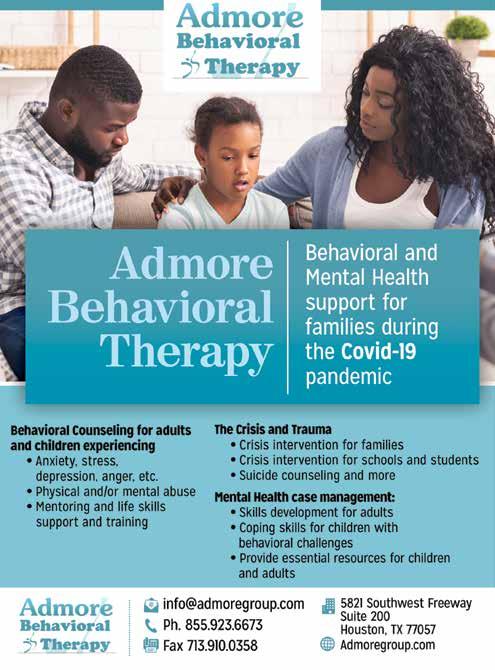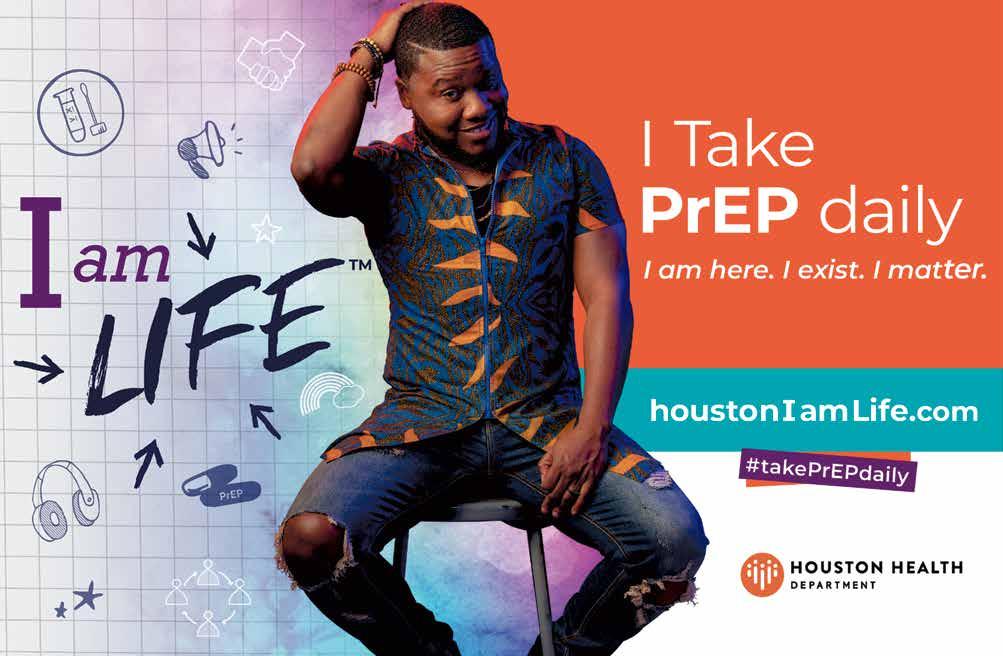








and Eggland's Best eggs.
By d-mars.com News Provider
Maybe you want to travel, read more books, learn a new skill or take up a new hobby. Whatever resolutions you set, it's important to create life-long habits to support your goals and overall wellness.
Not sure where to start? Registered dietitian Dalina Soto has three simple tips to set yourself up for success this year.
1. Prioritize self-care
You don't have to be sitting in a bubble bath to practice self-care. It's all about finding moments to relax, refresh and enjoy the things you love. If you're an early bird, try taking your morning coffee outdoors or make a cozy spot in your home to write, meditate or read. If you're more of a night owl, carve out time before bed to recharge and reset. Whatever you decide to do, make sure it's something that rejuvenates you so you can tackle the rest of the day as your best self.
2. Get moving

Instead of making a resolution to go to the gym three times a week, think about how you can incorporate physical activity into your daily life through smaller steps that are easier to keep up with. Maybe every hour, you get up and take a walk around the office or do a few stretches at your desk. Perhaps you'll start your day with a 10-minute yoga session or invite your friends to go on a lunch walk. All these movements add up and will help improve your mood, promote better sleep and even give you more energy to accomplish your other goals.
3. Fuel up on wholesome nutrition
Getting enough key nutrients at every meal is essential to your physical and mental health. When you're properly fueled, you can better concentrate on your goals and how to achieve them. Instead of starting the new year with a restrictive diet, think of ways you can add wholesome, nutritious ingredients to your recipes.
"It's important to give your body the best fuel possible, and there are many foods that are likely already in your diet that can provide what your body needs," says Soto. "Eggland's Best eggs, for example, contain superior nutrition such as six times more vitamin D, more than double the Omega-3s, 10 times more vitamin E and 25% less saturated fat compared to ordinary eggs, making them the perfect ingredient to add to any of your go-to recipes in the new year."
Are you looking for a delicious recipe to help fuel your body throughout the day? Check out this recipe that packs a nutritious and filling punch with chicken

Chicken vegetable bowl
Prep time: 25 minutes; Cook time: 25 minutes; Makes 4 servings
Ingredients
Chicken
1 pound boneless skinless chicken breast or tenders
1/4 cup olive oil
4 cloves garlic, minced or grated
1/2 teaspoon onion powder
1/2 teaspoon pepper
1/2 teaspoon smoked paprika
Rice and peppers
4 Eggland's Best Hard-Cooked Peeled Eggs, sliced
1 1/2 cups brown rice
3 cups chicken broth
2 peppers, sliced in strips
1 tablespoon olive oil
1/2 cup fresh parsley, chopped
1 clove garlic, minced
Instructions
Instructions
1. In large bowl, combine olive oil, garlic, onion powder, pepper and smoked paprika. Add chicken and toss well. Cover and place in fridge.
2. Add chicken broth to medium-size pot, bring to boil, then add the rice. Stir and place lid on pot and turn heat down to low. Allow rice to cook until all the water is gone and rice is no longer hard, about 30 minutes.
3. While rice is cooking, heat two skillets to medium-high heat.
4. Place peppers in zip-top bag and add 1 tablespoon of olive oil and a pinch of salt and pepper. Seal and shake well to coat.
5. In skillet, sauté chicken for 3-4 minutes per side, flipping a couple of times until cooked through.
6. While chicken is cooking, cook peppers for about 5 minutes, flipping once or twice in another skillet.
7. Remove everything and let cool for 5 minutes. Once cool, dice chicken into cubes.
8. To assemble, divide rice among four bowls. Top each with equal amounts of chicken, pepper and Eggland's Best HardCooked Peeled Eggs slices.
9. Garnish with shredded cheese and enjoy!
Source: BPT
 By d-mars.com News Provider
By d-mars.com News Provider
Do you get enough sleep each night? Do your loved ones? Or are you a "short sleeper," someone who routinely sleeps less than seven hours per 24-hour period - something known as short sleep duration.
The American Academy of Sleep Medicine and Sleep Research Society both recommend that adults aged 18 to 60 sleep at least seven hours each night to promote optimal health and well-being. Increasingly, researchers are finding that poor sleep quality and duration is associated with a slew of negative health conditions such as diabetes, obesity, stroke and Alzheimer's.
Most U.S. adults (88%) understand quality sleep is critically important to overall health, but a third of Americans (33%) regularly sleep less than the recommended minimum seven hours per night, and 44% do not have a serious sleep routine, according to a consumer survey by Tranquility weighted blanket brand. In the same survey, general stress and anxiety was the top barrier to getting good sleep.
blanket, and cutting off eating and drinking several hours before your established bedtime.
2) Incorporate small, realistic changes, like adjusting your immediate environment with cooler nighttime temperatures, new bedding or limiting evening screen time, versus more drastic changes that may be hard to maintain, like making a career change or cutting out coffee cold turkey. Giving up caffeine drinks can improve sleep, but less than two in 10 (19%) adults said they would be willing to try this tactic, whereas about a third would be willing to change

a weighted blanket that elicits a calming sensation through the application of deep touch pressure can compound the relaxing effect. If you work out in the evenings, adding a few minutes of gentle yoga, breathwork or meditation to the end of your session can help prep your mind and body for sleep.
4) Give yourself time to settle into your new routine. There will be days where family, social or work obligations disrupt your new pattern, and cutting off screen time or eating and drinking well in advance of bedtime is an impossibility. This is where a meditation routine or weighted blanket can come in handy, helping to quickly quiet a busy mind or body close to bedtime.
So, how can you improve sleep in the face of daily stresses and work-life demands?
1) Establish a sleep routine including wind-down rituals and a consistent bedtime, even on weekends. Wind-down rituals could include bathing at night, turning down lights, setting your devices to nighttime mode or Do Not Disturb, relaxing with a weighted
 Tami V. Allen, MS, LPC Contributing Writer
Tami V. Allen, MS, LPC Contributing Writer


Many individuals think forgiveness is saying, “I forgive you.” But forgiveness is the choice or decision to let go of resentment and the need to seek vengeance against people who hurt you, whether they deserve it or not. However, it does not mean you forget or approve of the action against you or let go of your boundaries and be taken for granted. Before forgiveness can be extended, it must be communicated and understood how the offense has hurt you with suggestions for how to prevent the hurt in the future.
While some minor offenses against you can be forgiven and it’s easy to move forward, some are forgiven but not forgotten and may be unrecoverable. Some of the major hurts that are difficult for relationships to recover from are infidelity, abuse, and broken trust.
The following outcomes are a result of choosing to forgive in your relationship.
1. As we already know, forgiveness releases us from the weight of the burden that eventually leads to resentment. Forgiveness must be extended to move forward and maintain harmony in your relationship. Resentment leads to anger, and anger affects your attitude and behavior toward your partner. This creates the hamster wheel effect of blame which can lead to the downfall of the relationship.
2. Forgiveness can strengthen love and vulnerability in your relationship. Your partner has the potential to hurt you most, because they are the closest to you and know your hot buttons. Forgiveness humbles us and is a decision to sacrificially love your spouse despite their faults. It is important to remember that we are not perfect just as much as our partner is imperfect, and grace must be extended if you want it back. The key is to identify your deal breakers, and decide that all other acts are forgivable when the forgiveness is not taken for granted and the action continues.
3. Forgiveness increases longevity and improves relational satisfaction and is a tool used in conflict resolution. Partners often claim they are each other's “best friend,” but when you think about your relationship with your friends, do you forgive your partner as easily and quickly as you do your friends, or do you keep a tab of his or her wrongdoings?
Forgiving demonstrates love in godly ways. Remember that forgiveness is a process without a predictable amount of time to get there. All actions can be forgivable but not always forgettable or have the ability to move forward in the relationship. You have to communicate boundaries in your relationship for what is acceptable and unacceptable. Choosing to forgive starts with giving yourself grace, time, and space to move through the process. Having the support of your partner, who hurt you, can decrease the recovery time.
My goal as a therapist is to work with individuals and couples to help bridge the gaps in your interpersonal development that subsequently affects your relationships. For more information about me and my services, please visit my website at www.AllenCounselingGroup.com. You can also reach me by email at Tami@ AllenCounselingGroup.com or by phone at 713-597-4499.
Like and follow the Allen Counseling Group on social media:


FB: @AllenCounseling2017
IG: @AllenCounselingGroup
Twitter: @CounselingAllen



With more than 34 million tobacco users in the United States, the estimated financial cost of smoking over a lifetime has reached above $2.3 million per smoker.
According to a new report from the Washington, D.C.-based financial planning website WalletHub, the average out-of-pocket cost per smoker stands at $133,911 over a lifetime.
An analysis revealed that smokers in the District of Columbia would pay the highest cost, $197,801, two times higher than in Missouri, where smokers will pay the lowest price at $96,535.

Further, each smoker will incur an average of $545,166 in income loss over a lifetime. In the District of Columbia, those who smoke will lose the highest amount, $746,669, or 1.9 times higher than in Mississippi, where smokers will yield the lowest amount at $389,500
Experts said each smoker would incur an average of $177,599 in smoking-related healthcare costs over a lifetime. Smokers in Massachusetts will pay the highest amount, $316,377, which is 2.6 times
higher than in Arkansas, where smokers will pay the lowest amount at $120,430
Further, WalletHub’s latest report quotes the American Lung Association, which stated that tobacco use accounts for nearly 500,000 deaths in the U.S. each year and ranks as the leading cause of lung cancer.
Those who smoke also may have an increased risk of severe symptoms from COVID-19. In addition, even those around tobacco smokers aren’t safe from its harmful effects.
Since 1964 , smoking-related illnesses have claimed over 20 million lives in the U.S., 2.5 million of which belonged to nonsmokers who developed diseases merely from secondhand smoke exposure.
However, the report revealed that the economic and societal costs are just as huge. Every year, smoking costs the U.S.
more than $300 billion, including medical care and lost productivity. Unfortunately, some people will have to pay more depending on the state in which they live.
“Evidenced-based strategies, including the combination of FDA-approved medications like nicotinereplacement therapy and nicotinefree medications and behavioral support, increase the chances of successfully quitting,” stated Dr. Mary Rezk-Hanna, a WalletHub expert and assistant professor at the School of Nursing at the University of California, Los Angeles.
“Setting a quit date and sharing it with
friends and loved ones for support increases the likelihood of quitting success. As far as the method, both quitting abruptly or gradually, by reducing smoking slowly until the quit date and then quitting, produce comparable cessation rates,” Dr. Rezk-Hanna remarked.
Dr. Steven A. Schroeder, the director of the Smoking Cessation Leadership Center and a professor of health and health care at the University of California, San Francisco, said most smokers want to quit.
“But it often takes multiple attempts before quitting is achieved, often up to 20 or more,” Dr. Schroeder insisted.
“But the good news is that there are now more ex-smokers than current smokers. In addition, the odds of quitting are increased if the smoker gets counseling combined with smoking cessation medications such as nicotine replacement therapy and varenicline. Unassisted quitting – or cold turkey – is less helpful and living with someone who smokes is also a handicap,” he concluded.
View the full report at www.wallethub.com.
Source: National Newspaper Publishers Association (NNPA)